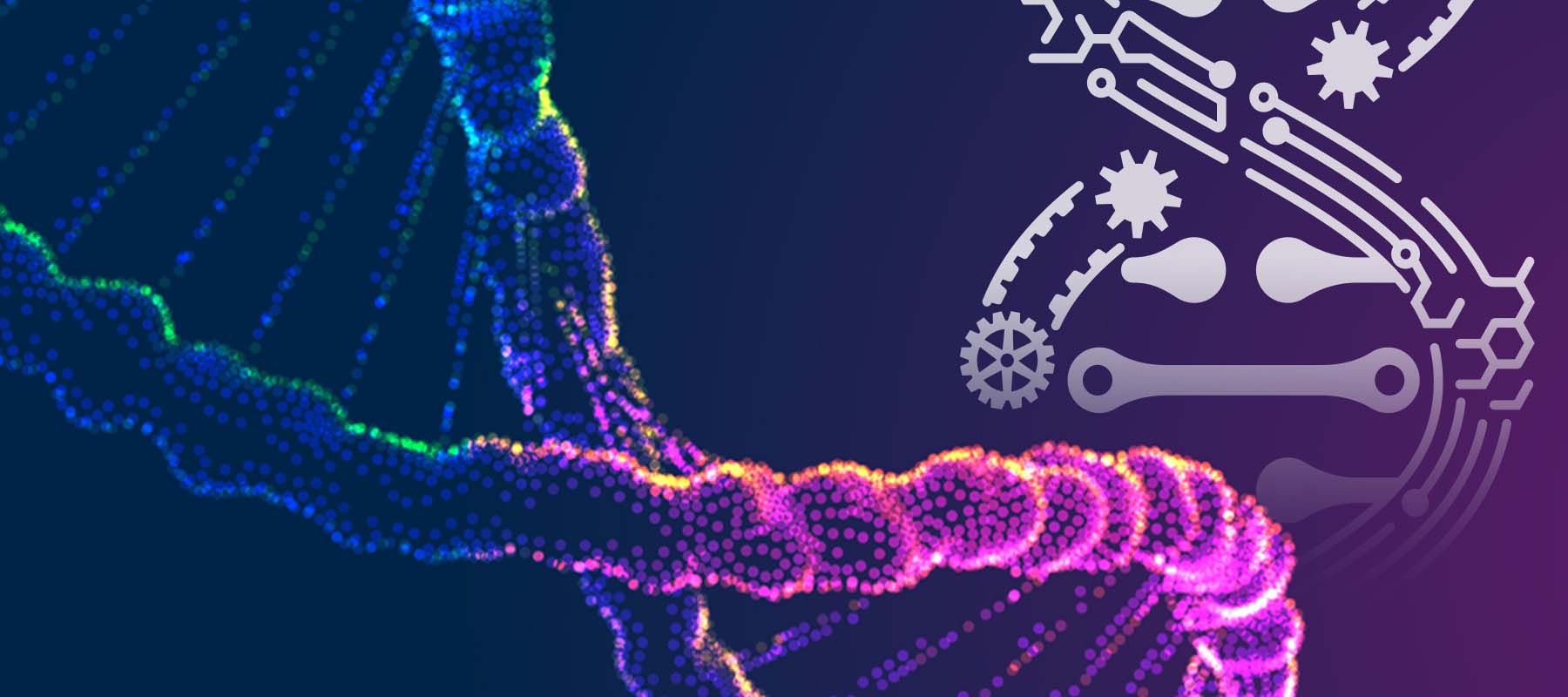Like any emerging field of technology, synthetic biology has proponents and critics. With great benefits come new problems to solve. Proponents of synthetic biology see its potential to contribute to key issues like sustainable development and curing cancer, but critics worry that it allows scientists to “play God”. Read on and discover the pros and cons in this synthetic biology overview.
Pro: Vaccine and Drug Development
Synthetic biology has already enabled the rapid public health response to Covid-19. Novartis developed a Covid-19 vaccine by deploying an existing synthetic biology emergency vaccine development pipeline that had been designed in response to the H1N1 flu pandemic. Not only can synthetic biology help with vaccine development, there are synthetic biology applications in vaccine delivery. At Prokarium in the UK, scientists have used a synthetic biology variant of salmonella to deliver vaccines without requiring an uncomfortable needle prick. The tamed bacteria delivers protein-based vaccines inside the body.
Synthetic biology is useful in pharmaceutical development. Synthetic biology allows for the production of valuable small molecules that are difficult to synthesize with chemical engineering or harvest naturally, such as the compound artemisinin. This compound is used in anti-malarial drugs, but it was hard to produce at a large scale until synthetic biology allowed for production of a precursor molecule, artemisinic acid with the help of a synthetic yeast.
Synthetic biology has great potential in a personalized medicine approach to fighting cancer. Synthetic biology provides the ability to program immune cells to recognize cancer cells while sparing healthy cells.
Health technology development is a major positive when considering synthetic biology’s pros and cons.
Con: Bioterrorism
Some ethicists worry that synthetic biology makes it easy to design dangerous organisms that could be released maliciously. However, synthetic biology can also mitigate bioterrorism risks by allowing scientists to create a variant of a microorganism that is less dangerous, which could out-compete a dangerous virus or bacteria strain.
Synthetic biology could also be used to create a vaccine or drug to respond to a threatening organism. So, while bioterrorism is a concern, synthetic biology could be used not just to create these threats but also to respond to threats. Bioterrorism is part of the pros and cons of synthetic biology, but it’s hard to say whether it’s a problem or a solution.
Pro: Sustainable Manufacturing
Sustainable manufacturing is firmly on the positive side of the pros and cons of synthetic biology. Unfortunately engineered yeasts and bacteria produce unsustainably harvested compounds, like flower oils for perfume.
Using living systems as a natural bio-factory to develop drug compounds or fuel ingredients eliminates the industrial waste of a purely chemical manufacturing process. Industrial manufacturing is a popular synthetic biology application. The methods and outputs of synthetic biology in manufacturing contribute to sustainable development.
Con: Agriculture Commercialization Concerns
Synthetic biology has already been applied in the field of agriculture to produce plants that are more nutritious, more resistant to pests, or lower in fertilizer needs. For example, there is a synthetic biology wheat variant that resists a common fungus, resulting in a crop that yields more wheat while maintaining the same carbon footprint.
However, since synthetic biology organisms are intellectual property, critics worry that commercializing these agricultural products might create a conflict of interest between biotechnology companies and rural farmers. This debate preceded synthetic biology with concerns about agriculture organisms that had been genetically modified without using synthetic biology. Critics fear that the efficient organisms developed with synthetic biology might reduce the demand for conventional crops, making it hard for small farms to compete.
However, synthetic biology has already shown itself to be a field with a generous stance on making beneficial intellectual property available to the public. For example, the development of BioBricks, synthetic biology’s building blocks, involved making the engineering spec for BioBricks open-source intellectual property. In addition, the existing markets for locally grown, organic heirloom produce and efficient crops that can feed billions already overlap very little.
Pro: Personalized Medicine
Personalized medicine to treat chronic disease is as important in the 21st century as treating infectious disease was in the 20th century. Synthetic biology may enable new treatment techniques for cancer, immune diseases, and metabolic disorders.
Given that these diseases are leading causes of death, synthetic biology applied to personalized medicine could be as groundbreaking as smallpox vaccines.
Con: Human Ethics Dilemmas
Synthetic biology poses new ethical dilemmas related to human life. As genome editing becomes more advanced, new questions arise for bioethicists. Synthetic biology pros and cons involve not just scientific issues, but also moral issues. For example, is it ethical to eliminate genetic disorders?
Will genome editing deepen inequality as richer families can afford to “upgrade” genes? Some people feel that this technology makes it too easy to “play God” and create unintended consequences.
The Future of Synthetic Biology
There are serious synthetic biology pros and cons, like any powerful emerging technology. By weighing the pros and cons of synthetic biology, regulatory bodies and scientists can mitigate risks and amplify benefits.
Fortunately, synthetic biology has a naturally limiting factor: larger, more complex organisms will not be developed until smaller organisms can be developed. This provides a testing ground where risk management strategies can be implemented. A bright future is possible if new technologies are used with careful consideration.
Other things to consider:
- How does synthetic biology contribute to personalized medicine, particularly in the context of cancer treatment, and what are the current challenges in implementing these techniques on a broader scale?Synthetic biology offers promising avenues for personalized medicine, notably in cancer treatment, by enabling the programming of immune cells to target cancer cells specifically. However, challenges persist in scaling these techniques beyond experimental settings due to complexities in ensuring safety, efficacy, and accessibility of personalized treatments. Addressing these challenges requires interdisciplinary collaboration between scientists, clinicians, regulatory bodies, and healthcare stakeholders to navigate ethical considerations, regulatory frameworks, and technological advancements in genome editing and cellular engineering.
- What strategies can be employed to address the ethical dilemmas arising from genome editing and synthetic biology, particularly concerning human life and genetic modification?Mitigating the ethical dilemmas associated with genome editing and synthetic biology demands a multifaceted approach encompassing robust regulatory oversight, transparent public engagement, and ethical guidelines informed by diverse perspectives. Strategies may include establishing clear frameworks for responsible research and innovation, fostering interdisciplinary dialogue among bioethicists, policymakers, and stakeholders, and promoting education and awareness campaigns to empower informed decision-making. Additionally, international collaboration and harmonization of ethical standards can help navigate the complexities of emerging biotechnologies while upholding fundamental ethical principles and human rights.
- In what ways can synthetic biology contribute to sustainable development, and how can potential environmental risks associated with engineered organisms be effectively managed?Synthetic biology offers significant potential for sustainable development by leveraging living systems as natural bio-factories to produce valuable compounds and mitigate industrial waste. To manage potential environmental risks associated with engineered organisms, proactive risk assessment, and mitigation strategies are essential. This includes conducting comprehensive environmental impact assessments, implementing containment measures to prevent unintended release, and fostering responsible stewardship of synthetic biology applications through adherence to established biosafety protocols and regulations. Additionally, fostering transparency, collaboration, and public engagement can enhance trust and confidence in synthetic biology initiatives aimed at sustainable development.
For more information and support in expanding synthetic biology within your lab, contact Hudson Robotics today.

